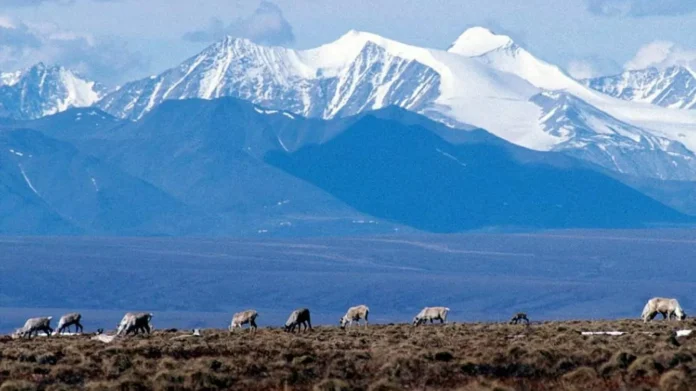The Biden administration is making strides towards a more sustainable future by moving ahead with the smallest possible oil and gas lease sale in the Arctic National Wildlife Refuge (ANWR). This decision, while controversial, is a necessary step towards protecting our environment and preserving the natural beauty of this precious refuge.
Under the 2017 Tax Cuts and Jobs Act, the Bureau of Land Management (BLM) is required to auction off opportunities to drill in the ANWR by the end of this year. This mandate has been met with strong opposition from environmental groups and indigenous communities who have long fought to protect this pristine wilderness.
The ANWR, located in the northeastern corner of Alaska, is home to a diverse array of wildlife including polar bears, caribou, and migratory birds. It is also a vital breeding ground for many species, making it a crucial part of the ecosystem. The potential impact of oil and gas drilling on this fragile ecosystem cannot be ignored.
However, the Biden administration has taken a bold step in limiting the lease sale to the smallest possible size, with only 10 tracts of land covering 1.6 million acres being made available for bidding. This is a significant reduction from the previous administration’s plan to open up the entire refuge for drilling.
This decision is a testament to President Biden’s commitment to combat climate change and protect our environment. By limiting the lease sale, the administration is sending a strong message that the protection of our natural resources and wildlife is a top priority.
Moreover, the BLM has also imposed strict regulations and environmental safeguards for any potential drilling activities in the ANWR. This includes measures to minimize the impact on wildlife and the environment, as well as strict monitoring and enforcement of these regulations.
The lease sale is also expected to generate significant revenue for the state of Alaska, which has been hit hard by the economic downturn caused by the COVID-19 pandemic. This revenue can be used to support local communities and invest in renewable energy projects, further promoting a transition towards a greener economy.
While some may argue that any drilling in the ANWR is unacceptable, it is important to note that the lease sale is a result of a controversial mandate that was passed by Congress. The Biden administration is simply fulfilling its legal obligation while also taking steps to minimize the impact on the environment.
In addition, the lease sale is not a guarantee that drilling will actually take place. The bidding process is competitive and companies must meet strict criteria to be eligible for a lease. Furthermore, any drilling activities must also go through a thorough environmental review process, which could potentially lead to the rejection of drilling proposals.
It is also worth mentioning that the demand for oil and gas is declining as the world shifts towards cleaner and more sustainable sources of energy. This makes the potential profitability of drilling in the ANWR uncertain, further reducing the likelihood of significant drilling activities taking place.
In conclusion, the Biden administration’s decision to move ahead with the smallest possible oil and gas lease sale in the ANWR is a step in the right direction. It shows a commitment to protecting our environment and promoting a more sustainable future. While the lease sale may be controversial, it is a necessary step towards fulfilling a legal obligation while also minimizing the impact on the environment. Let us hope that this decision will pave the way for further actions to protect our planet and preserve its natural beauty for generations to come.

